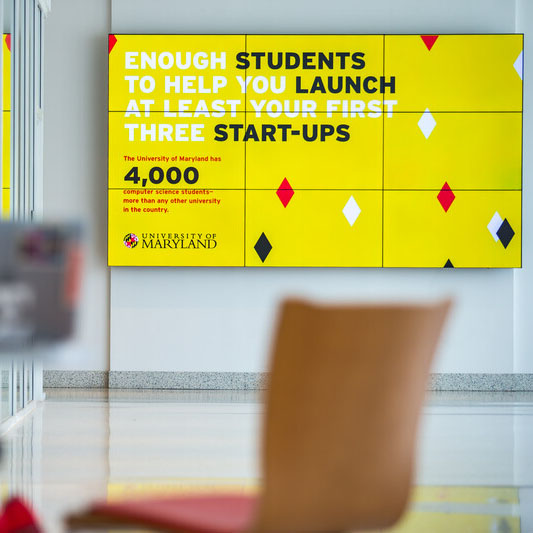Upon completing the academic requirements of the Southern Management Leadership Program, students earn a minor in Technology Entrepreneurship at the University of Maryland, College Park.
A total of 15 credits accrued in undergraduate courses is required to complete the minor. Students complete one of the required minor courses while attending Montgomery College or Prince George's Community College, and complete the final 12 credits at the University of Maryland.


SMLP 470 – Fundamentals of Entrepreneurial Ventures
Learn the processes and skills needed to launch and manage start-up ventures, including technology startups. Assess the feasibility of a startup ventures, as well as how to apply best practices for planning, launching, and managing new companies by using real-world examples and in-depth case studies. Discuss a wide range of issues of importance and concern to entrepreneurs and learn to recognize opportunity, assess the skills and talents of successful entrepreneurs, and learn models and approaches that help navigate uncertainty.

SMLP 471 – Entrepreneurial Finance
Examine the elements of entrepreneurial finance, develop and analyze financial statements, focusing on technology-based startup ventures and the early stages of company development. Address key questions that challenge all entrepreneurs: how much money can and should be raised; when it should be raised and from whom; how to define a reasonable valuation of a company; and how to structure funding, develop employment contracts, and make exit decisions. Analyze the variety of financing models across a venture's life cycle, with an aim to understanding the incentives of each type of investor and the relative costs and benefits of each source of funding.

SMLP 472 – Strategies for Innovation & Entrepreneurship
This upper-level class for seniors in the Southern Management Leadership Program seeks to demystify innovation and entrepreneurship. Students learn the ways that firms come up with innovations; the strategies that firms use to benefit from innovation; and how to create new value not only through new products or services, but with novel technologies and business concepts. Students will leave the course feeling confident in their own entrepreneurial mindsets and with a set of skills to help them be innovative throughout their careers.

SMLP 473- Consulting in Tech Entrepreneurship
Apply the entrepreneurship/business principles learned in the classroom to real-world consulting projects. Gain practical experience by solving actual business situations and by dealing with ambiguity and uncertainty inherent in fast-moving technical organizations. Develop key skills in negotiation, group dynamics, organization, and planning.